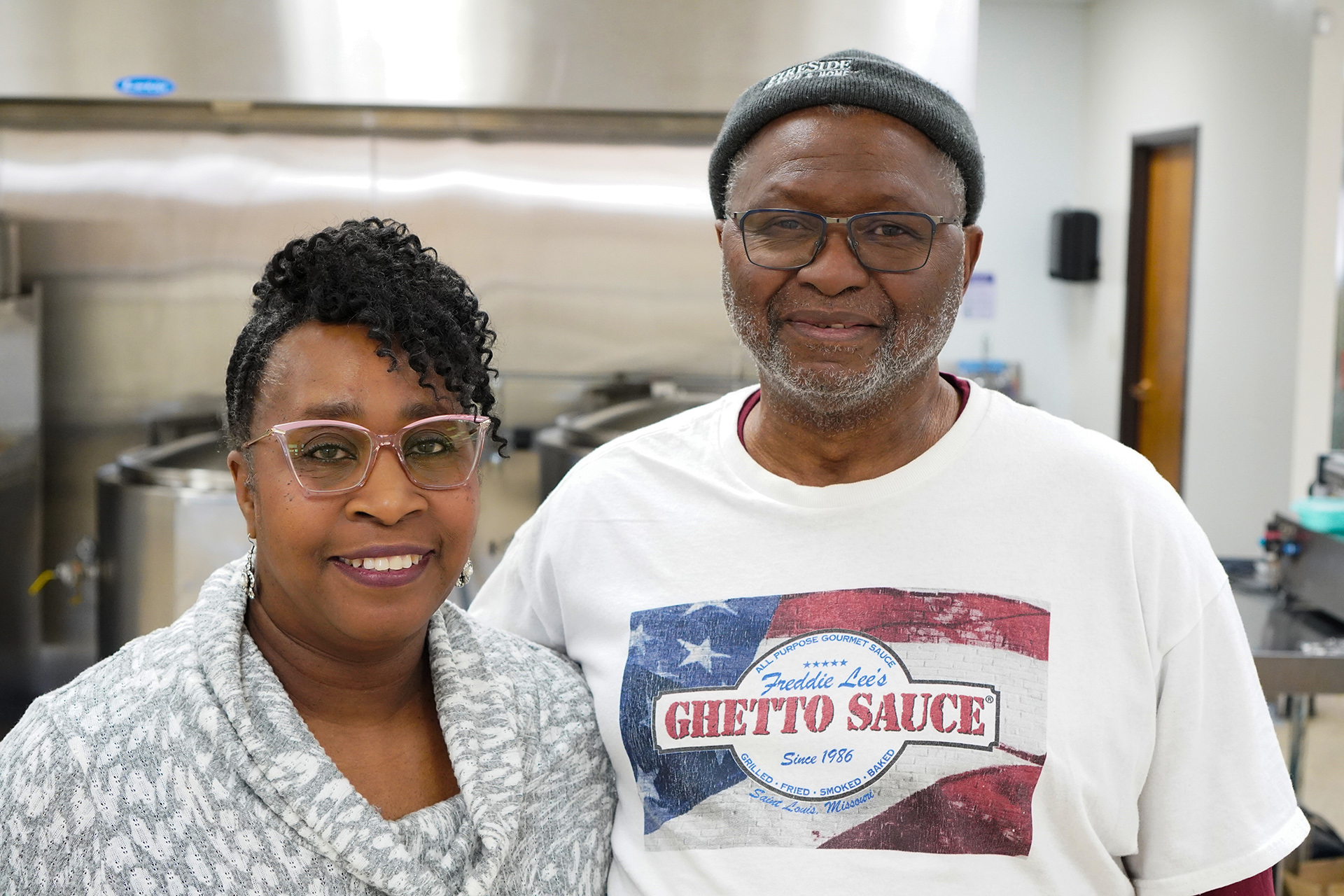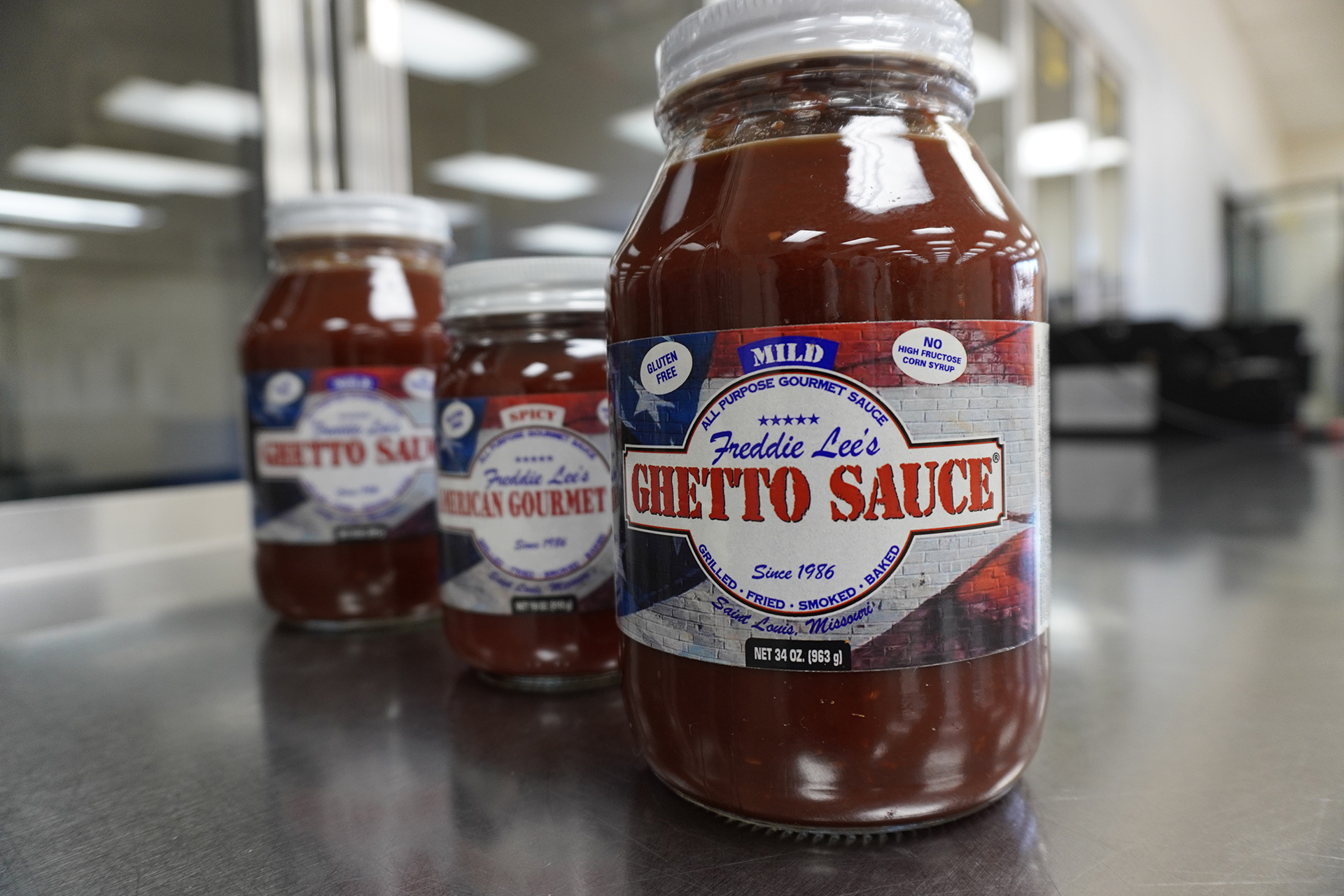Serving Up Success: St. Louis Community Credit Union Provides the Special Sauce For Minority Entrepreneurs

When Freddie Lee and Deborah James first started making their homemade sauce, they never imagined it would grow into a thriving business. What began as a simple hobby — sharing jars of sauce with friends and coworkers — soon turned into a full-fledged operation. Friends who tasted their sauce insisted they should take it to market, but the road from homemade batches to store shelves was anything but easy. Despite their passion and a loyal customer base, they faced a common hurdle for many small businesses owned by people of color: access to capital.
Freddie, a former construction worker, recalls how it all started. “We were making sauce at home, and my coworkers loved it. They’d come over with pickle jars just to get some. But turning it into a business wasn’t something we planned. We prayed about it and decided to take a leap of faith.” The couple began selling their sauce at garage sales, flea markets, and farmers markets. Demand grew rapidly, and soon their home kitchen could no longer keep up. They needed to scale their production and meet FDA regulations, but expanding required capital they didn’t have.
The journey to secure funding, however, was filled with frustration. “We had a credit score around 700,” Deborah explains, “but no one would give us a loan — not even for $5,000 to cover supplies and travel.” The rejection was particularly disheartening because the very institutions denying their loan requests were also buying their sauce. “They knew we had a good product,” Freddie adds, “but they still wouldn’t help us. It was like being so close to success but not being able to reach it.”
Just when they were beginning to lose hope, a friend introduced them to Alex Fennoy, senior vice president for business services at St. Louis Community Credit Union. Unlike the big banks that had turned them away, Alex took a different approach. He didn’t just look at their credit score; he wanted to understand their business, their vision, and the challenges they faced.
“We don’t ignore history,” Alex explains. “For over 400 years, people of color have faced unfair treatment. We know they might not have the generational wealth or liquidity that white business owners do. So, we meet them where they are and help them get to where they want to be.”
St. Louis Community Credit Union still evaluates the traditional “five C’s of credit” (character, cash flow, collateral, capacity, and consistency), but they also consider the systemic barriers that minority business owners face. This more holistic approach has led to remarkable results: of the $50 million they’ve loaned out, 90% has gone to businesses owned by people of color. For Alex, these loans aren’t just financial transactions; they’re opportunities to change lives and transform communities.
For the Jameses, the partnership with St. Louis Community Credit Union was a turning point. “Alex didn’t just give us money,” Freddie says. “He took the time to understand our vision and walk us through the process. He showed us what we needed to do to be successful.”
With the credit union’s support, their business exploded. They expanded from 500 stores to 1,200, including a coveted placement in 270 locations of a major grocery chain. This growth not only benefited their family but also their community. By locating their business in an accessible neighborhood with good public transportation, they’ve made it easier for employees to commute. Many of their workers live nearby, and the jobs they provide contribute to the local economy.
“We’re right on the bus line,” Deborah says. “It’s easy for people to get here. And small businesses like ours pay taxes that help the community. Our success isn’t just about us — it’s about everyone around us.”
Alex sees stories like the Jameses’ as proof that there is an untapped well of potential in St. Louis. “Our phones ring off the hook,” he says, “and we’ve done zero marketing. That tells me there’s a huge opportunity to support minority businesses. When they succeed, the whole region benefits.”
Indeed, the ripple effects of supporting small businesses extend far beyond the owners themselves. As Freddie puts it, “America was built on small businesses. If we keep growing, we can keep hiring, and that helps everyone.”
The Jameses’ journey highlights a critical lesson for financial institutions: building relationships matters. Deborah emphasizes that lenders need to take the time to understand a business’s goals and plans. “When you’re lending money, especially to a small business, get to know them. Go to lunch, ask about their vision. Then work with them to make it happen. That’s what Alex did for us.”
Their story is a powerful reminder that access to capital can be a game-changer — but only when lenders are willing to see beyond the numbers. By recognizing the unique challenges faced by minority entrepreneurs and partnering with them to overcome those barriers, institutions like St. Louis Community Credit Union are not only helping businesses thrive but also fostering a more equitable and prosperous future for the entire community.

